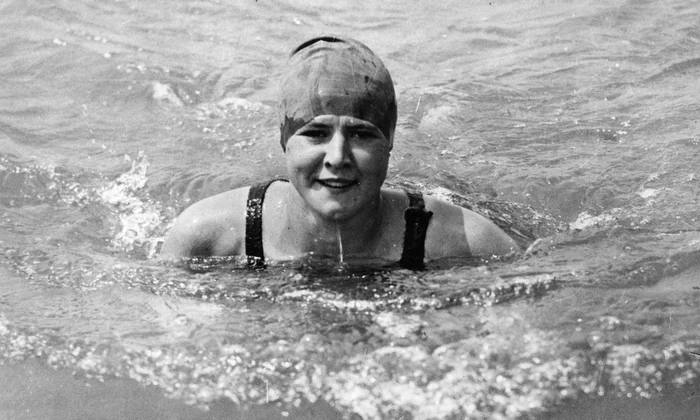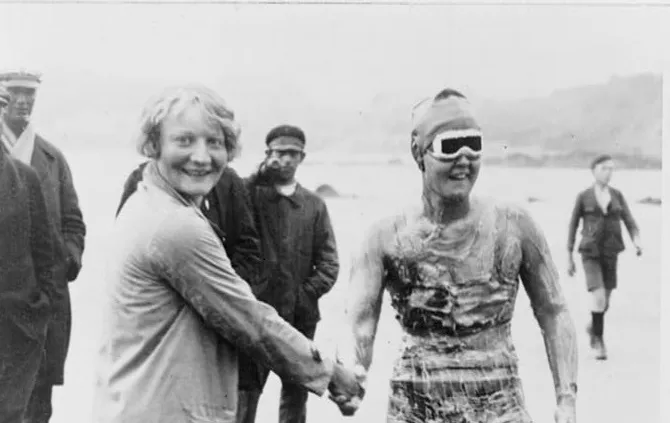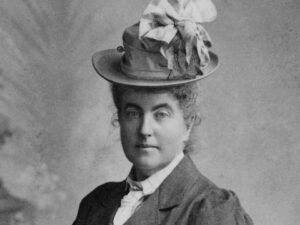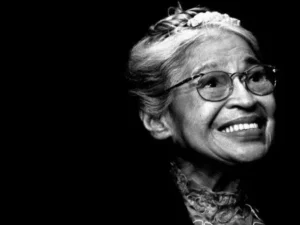There are moments in sports history that feel almost mythical—where sheer determination meets impossible odds. In 1926, a young woman from New York did something no other woman had ever done before. Her name was Gertrude Ederle, and she didn’t just swim across the English Channel—she did it faster than any man before her. Yet, despite her incredible feat, her name is often overlooked in the annals of sports history.
A Water Baby from the Start

Gertrude Ederle was born in 1905 to German immigrant parents in Manhattan. As a child, she was never one to sit still. She found her calling in water, learning to swim in New Jersey’s beaches and the local pool. While other girls played with dolls, Trudy, as she was affectionately called, was diving into the waves, honing the skill that would make her legendary.
By the time she was a teenager, she had already set multiple world records in competitive swimming. At 19, she competed in the 1924 Olympics, bringing home a gold and two bronze medals. But Trudy wasn’t satisfied. She had her eyes set on something far bigger—the English Channel, a grueling 21-mile stretch of open water that had defeated many strong swimmers before her.
The First Attempt: A Heartbreaking Failure
In 1925, she made her first attempt. Cold waves battered her body, the tides pushed against her, and after nine long hours, her trainer pulled her out, claiming she had lost consciousness. Trudy was devastated—she had not lost consciousness, and she felt betrayed. But she refused to give up. Instead of wallowing in defeat, she trained harder, adjusted her swimming technique, and prepared for a second attempt.
The Second Attempt: A Triumph Against All Odds

On August 6, 1926, she dove into the water from Cape Gris-Nez, France. The waves were rough, the water was freezing, and the salty spray burned her eyes. For 14 hours and 34 minutes, she swam relentlessly, battling exhaustion and a relentless sea. Her father had promised her a new car if she succeeded, and she repeated to herself over and over, “Trudy, you must get that car.”
At just 20 years old, she had become the first woman to conquer the English Channel.
Finally, she reached Kingsdown, England, collapsing onto the shore. Not only had she completed the swim—she had shattered the existing record by nearly two hours. At just 20 years old, she had become the first woman to conquer the English Channel.
The Aftermath: Fame, Glory, and a Silent Struggle
When she returned to the United States, New York City gave her a ticker-tape parade, celebrating her as “America’s Best Girl.” She met the President, received countless awards, and became a national icon. But behind the fame, a silent struggle loomed.
Years of swimming had taken a toll on her hearing, which had already been weak since childhood. By the 1940s, she was almost completely deaf. But instead of retreating from life, she used her experience to teach deaf children how to swim, proving that her strength wasn’t just in the water—it was in her heart.
A Legacy Worth Remembering
Gertrude Ederle’s story is not just about swimming—it’s about resilience, determination, and the will to fight against the currents life throws at us. She didn’t just break a record; she redefined what women could achieve in sports.
Even today, her name may not be as widely recognized as it should be, but every female athlete who dives into open water carries a piece of Trudy’s legacy with her. She was a pioneer, not just in swimming, but in proving that no goal is too distant, no ocean too wide, and no dream too impossible.
Final Thoughts
Gertrude Ederle swam against more than just the tides of the English Channel—she swam against the limitations society placed on women. Her story is a testament to perseverance, courage, and the belief that the only limits we have are the ones we refuse to challenge.
So the next time you stand at the edge of a challenge that feels too vast, remember Trudy. Take a deep breath—and dive in.










































1 thought on “Meet Gertrude Ederle: Girl Who Swam Across the English Channel”